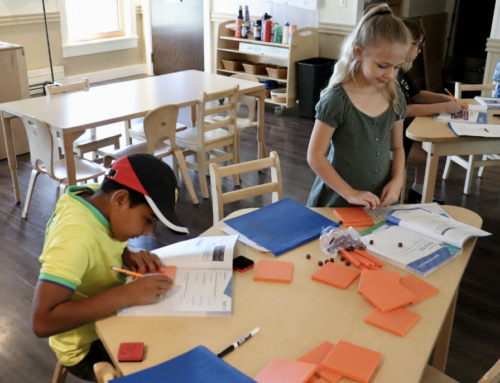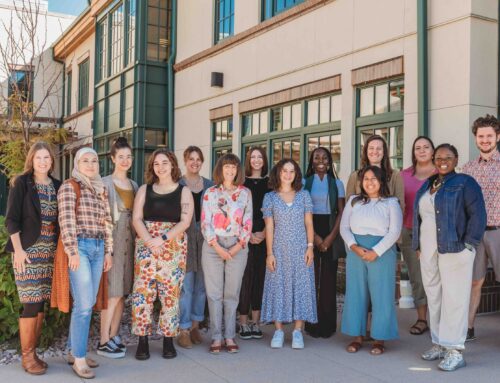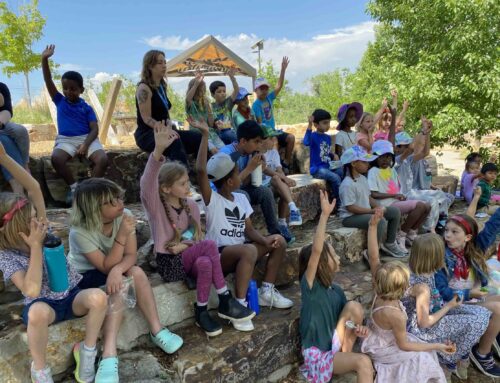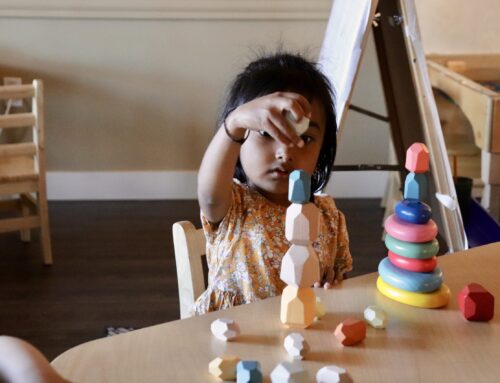Hello!
Welcome to my first blog post as the Head of School of Compositive Primary! I am so excited to be a part of this amazing institution and can’t wait until we are up and running with students in August 2019. We are busily preparing for school to be open: the admissions process is underway, we are interviewing several impressive candidates for faculty positions, we continue to develop and refine our curriculum, and construction is happening – there is a lot going on!
Amidst this hustle and bustle, I still make time to stay on top of trends in education, and one of my favorite things to do in this regard is listen to podcasts. One that I enjoy particularly is called Hidden Brain. Hosted by Shankar Vendantam, the podcast, originally a segment on NPR’s Morning Edition, investigates unconscious patterns in our brains that drive our actions and thoughts. Using storytelling, research, and interviews, Vendantam leads the listener through different experiences and ideas involving such disciplines as psychology, anthropology, neurobiology, and, often, education.
I recently was catching up on episodes and came across a fascinating exploration around parenting types. The main guest on the episode was Alison Gopnik, a professor of philosophy and psychology at the University of California, Berkeley. She has written several books, including one that focuses on how we view parenting – a term, she says, that is relatively new. By referring to parenting as opposed to being parents, we imply a more active role in raising our kids, which certainly does make sense given how the role of parent has changed over the last several years. Gopnik argues that many parents today view their children as something they can shape, mold, or cut a certain way. She calls these parents carpenters – they have an idea of how they want their children to turn out, and they believe that if they sign them up for the right classes, send them to the right schools, and do everything just so, they can create children who will turn out exactly as they plan – just like a carpenter creating a bookshelf or a chair.
Gopnik claims that this goal-oriented view contradicts child development and does not give our children the freedom to develop into their own best selves. Children are messy and unpredictable, and to expect otherwise will lead to tension and strained relationships. She argues that we should instead recognize that our job as parents is to create a safe and nurturing space for our children to explore, to develop, and to become who they will become. Parents who do this are like gardeners, who may not know exactly how their plants will turn out but instead strive to nurture and care for their plants by giving them love, attention, and the nutrients they need to grow. A successful gardener has to let go of strictly defined outcomes and must be comfortable with change and unpredictability.

I love this analogy and find it incredibly aligned with the Compositive model. As we build our school, we aim to create a rich, loving, engaging environment for our students to connect with and explore. We hope to develop certain capacities in all of our students: the capacity to reflect and learn, the capacity to recognize and act, the capacity to care and connect, and the capacity to engage and serve. But this will look different for each student. One student may develop a passion for the environment and will apply her knowledge and skills to this passion, whereas another may recognize in himself an interest in performing arts and will use his knowledge and skills to create theater that will engage and entertain. Both are engaging and serving in their communities, but in very different ways.
And our classrooms will look different each year because a student-centered curriculum morphs and adapts constantly. But we know that learning occurs much more readily (and sticks with students after the fact) when they feel engaged and connected to what they are learning and when they feel a sense of purpose and understanding about why that learning is important.
Any good teacher knows that while it’s imperative to have a plan for class, it’s also imperative to allow for change and growth within that plan. When we take the time to focus more on creating a warm, loving, rich environment for our students, we allow our students to take shape in their own amazing ways. I can’t wait to see this in action!
If you’d like to read more about and listen to this podcast, click here.
Until next time!
Heather Mock





